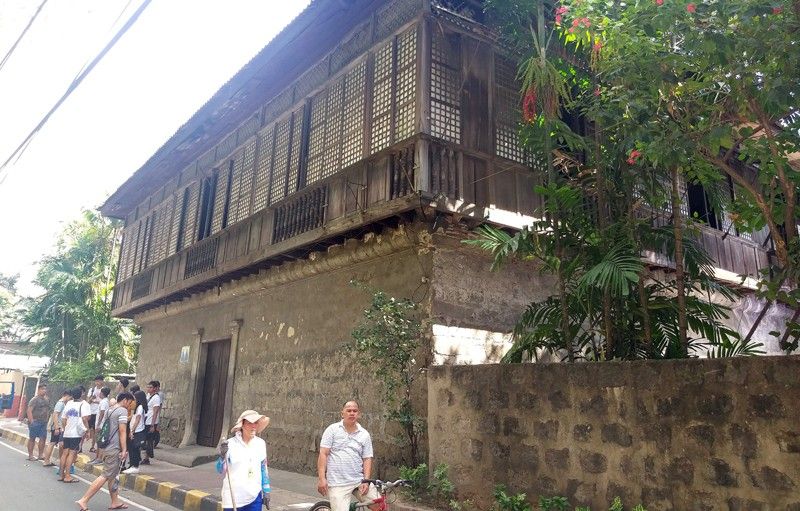Pasig’s martial law ‘freedom house’ named important cultural property

MANILA, Philippines — What used to be the “freedom house” that hosted both student activists and pro-Marcos local government leaders in Pasig City during the martial law years has been named an “important cultural property (ICP)” by the National Museum, ahead of the 34th anniversary of the people power revolution today.
This was according to Pasig City Mayor Vico Sotto, who announced on Sunday that the century-old heritage structure Bahay na Tisa (house of clay tiles) on P. Gomez St. in Barangay San Jose was publicly declared an ICP last Feb. 19, the 75th anniversary of the city’s liberation from Japanese forces.
The oldest bahay na bato in existence in the city, the structure was built by Don Cecilio Tech in the early 1850s and has been home to eight generations of direct descendants.
It witnessed and survived historical events, including World War II and the Philippine-American War.
During the martial law years, it was known among barangay residents as the “freedom house” as it hosted both factions of the political spectrum for meetings.
Marie Antoinette Tech-Mendoza, a sixth-generation descendant of Don Cecilio, said the house was sometimes used by Marcos-loyalist local government officials for functions in the 1970s.
Little did these officials know that the house was frequented by people whom they would brand as “subversives” back then – a group of activists who were university students of Mendoza’s father Carlos.
“I had just finished college when my dad started hosting these functions for his students. It was a time that convening was forbidden, times were difficult… Even if one had no plans to fight back against tyranny, you have to – for freedom,” Mendoza said in an interview.
“What the students were doing back then was dangerous, because simply talking could be interpreted as a subversive act – that talking already meant you were planning on overthrowing the government. It was very hard,” she added.
The National Museum’s public declaration of the house as an ICP has so much meaning for the family, according to Mendoza, who said the local government had recently tried to force them out of their heritage home.
In March 2018, then-mayor Robert Eusebio signed an ordinance to expropriate the Bahay na Tisa, a copy of which was obtained by The STAR. It was also signed by the vice mayor and members of the city council, except two – one of them was Sotto.
The family was left out of the decision and was only informed of the expropriation measure in July that year. Council members claimed that the family had not been responsive.
“When I knew about the ordinance, I wondered: ‘Has martial law been declared in Pasig?’ Because it brought back the memories of martial law that the authorities can do anything,” Mendoza said.
The ordinance also provided that once the local government would have filed the expropriation proceedings and paid 15 percent of the house’s fair market value, the Tech family would be forced out of their home of over a century.
“How much was 15 percent of this house’s value? It has since depreciated dramatically. It now stands at P800,000, so what’s 15 percent of that? They could’ve easily bought us out,” said Angelo Rivera, a seventh-generation descendant and tour facilitator of Bahay na Tisa.
With the ICP declaration, the ordinance has been superseded and the house may now receive government funding for its protection, conservation and restoration.
Mendoza said the house now stands for justice and their family values that pushed them to fight against tyranny, like what they did during the previous administration’s shakedown.
“It stuck in my mind that I never want tyranny to happen again. I don’t want to hear people disappearing and killed without due process. Whatever that is, I will fight for the freedom of my family and everyone,” she said.
The National Museum is mandated by the National Cultural Heritage Act of 2009 to declare ICPs that have been singled out from among the innumerable cultural properties as possessing “exceptional cultural, artistic and /or historical significance” to the Philippines.
Because of Bahay na Tisa’s contribution to the history, culture and way of life of Pasigueños, the Pasig City government conferred the old house the Dangal ng Pasig Award for Culture last year.
- Latest
- Trending




























